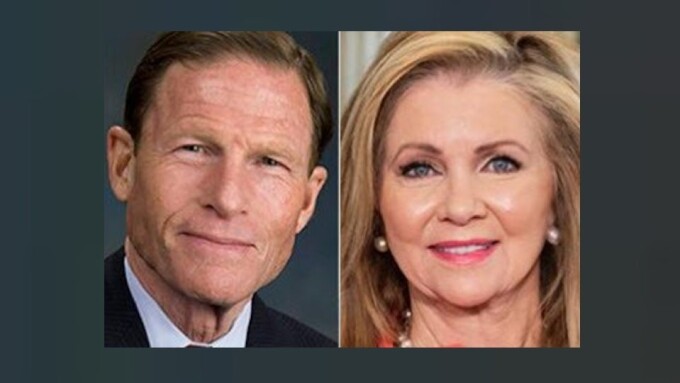WASHINGTON — Digital rights advocates are sounding the alarm about privacy and censorship concerns regarding the Kids Online Safety Act of 2022, recently introduced by Senators Richard Blumenthal (D-Connecticut) and Marsha Blackburn (R-Tennessee).
Known as KOSA, the bill was introduced rather quietly in late February as most digital rights observers were distracted by the progress of the much more high-profile EARN IT Act, also co-sponsored by Blumenthal.
According to a scathing March 24 editorial by Jason Kelley of leading digital rights organization Electronic Frontier Foundation, KOSA hides behind its “protect the kids” name and supposed mission “a plan to require surveillance and censorship of anyone 16 and under” which would actually “greatly endanger the rights, and safety, of young people online” while also chilling controversial speech — including sexual expression — across the internet.
As Kelley points out, KOSA “outlines a wide collection of content that platforms can be sued for if young people encounter it.”
This potentially actionable content includes very specific issues such as “promotion of self-harm, suicide, eating disorders [and] substance abuse,” but then leaves the door open for broad interpretation by adding “and other matters that pose a risk to physical and mental health of a minor.”
The law also would compel platforms to provide data to researchers, mandate an elaborate age-verification system — likely run by a third-party provider — and require “parental controls, turned on and set to their highest settings, to block or filter a wide array of content.”
In order to avoid liability for causing the listed harms, the EFF editorial points out, “nearly every online platform would hide or remove huge swaths of content. And because each of the listed areas of concern involves significant gray areas, the platforms will over-censor to attempt to steer clear of the new liability risks.”
KOSA, a New Stratagem From Two Vocal EARN IT Cheerleaders
As XBIZ reported, back in February Senator Marsha Blackburn issued a statement listing NCOSE — formerly Morality in Media — among the supporters of the controversial EARN IT Act, which has been overwhelmingly condemned by leading digital rights and free speech organizations, including Free Speech Coalition.
The Tennessee Republican also claimed that the act targets online platforms because they supposedly “have made it easier for pedophiles to groom and exploit children.”
Blackburn released that statement to celebrate the rushed, debate-free process that resulted in EARN IT’s passage by the Senate Judiciary Committee.
Senator Blumenthal promoted EARN IT in partnership with his South Carolina Republican colleague Lindsey Graham. The bill was initially introduced in 2020 and purports to have as its goal to “protect victims and survivors of child sexual exploitation.”
In reality, however, it is a broad overhaul of Section 230 protections — known by online rights advocates as the First Amendment of the internet — and would strip platforms of immunity for third-party uploaded content.
EARN IT will also open the way for politicians to define the legal categories of “pornography” and “pornographic website” as they or the lobbies that fund them see fit, a cherished goal of organizations that seek to reintroduce obscenity prosecutions for content currently protected by free speech jurisprudence.
To read the proposed text of KOSA, click here.







